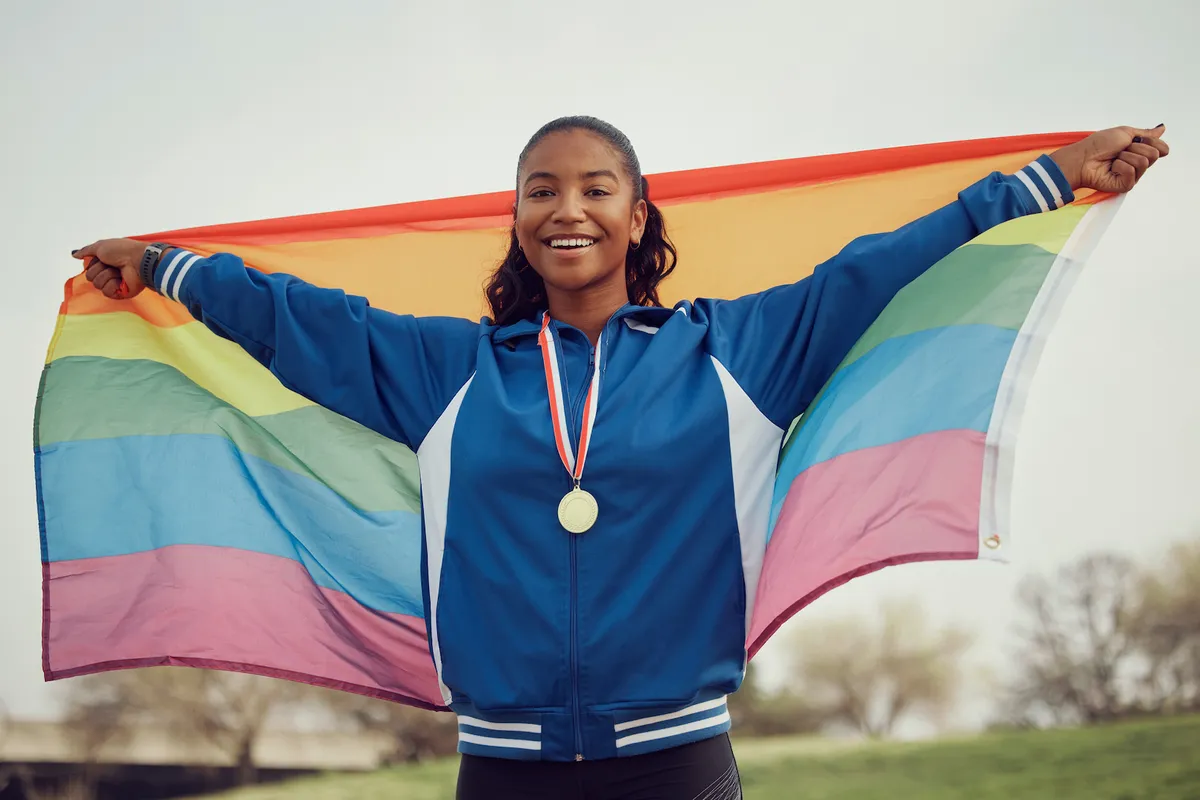Triathlon, like nearly every sport, is a world where your performance has always been the main way that you relate to your fellow athletes. It’s about who’s faster or stronger, and in an ideal world those should be the only things that matter.
But as triathlon has grown as a participation sport it has increasingly intersected with the ways people define themselves beyond sport and the challenges that different groups face in modern British society.
In order to continue to receive lottery funding, British Triathlon has started to collect ED&I (equality, diversity and inclusion) data on its members, which has enabled them to identify groups that are currently underserved by the sport.
One of the main groups identified as under-represented were BME (Black and minority ethnic) people. It didn’t surprise me. After nine years of training and racing, my, admittedly anecdotal, evidence is that triathlon is a very white sport. I remember attending the age-group team briefing at Weert in 2019 and, of the couple of hundred athletes in the room, I could count the number of BME people on one hand.
Why network groups are vital
Diversity in triathlon is a cause that I have been particularly involved in since 2018. As a gay man I have been well aware of the ways that I am different from my heterosexual peers and, although I am sure it was unintentional, there have been times where I have consequently felt like an outsider.
In 2018, World Triathlon attempted to ban the rainbow flag from events. I wouldn’t want to speculate on why the global governing body thought this was a good idea (supposedly to "protect athletes from demonstrations against them"), but at the very least it demonstrates that there is little consideration of how certain decisions may affect groups that have different needs to the majority.
World Triathlon backed down from the rainbow flag ban after a few days following negative press coverage. This was only possible because British Triathlon had posted in the British Triathlon LGBTQ Network Facebook group to let us know that this was coming and to ask for our views.
If it wasn’t for that network (that had been set up by British Triathlon a year or so beforehand) it’s likely that the ban would have come into effect and individual LGBTQ triathletes would have had to accept it, with no route to appeal.
The LGBTQ Network has also helped with athletes’ views on the 2022 age-group world championships being held in the UAE, where being LGBTQ is illegal. I and other athletes didn’t want to compete in a country where we might face arrest simply for existing.
Via the Network, we were able to raise our concerns to British Triathlon, including in a discussion with Andy Salmon, the CEO. As a result, we were able to defer our places to next year rather than miss out entirely.
The issues discussed above are ones which only affected a minority of triathletes. If governing bodies were only concerned about issues that impacted the majority, it’s likely that no resolutions would have been found in these instances and the sport would have become a worse, less accepting place for it.
Making inclusivity visible

To fly a rainbow flag at an event is one of the key ways LGBTQ+ people can be visible in sport, which remains several years behind wider society in terms of LGBTQ+ acceptance. It’s human nature to look for and to be inspired by people who look like us. Female, BME and disabled athletes are rightly lauded to inspire children in these demographics to get active and involved.
For LGBTQ+ people, it’s important to have a symbol in sport so we may identify ourselves, stake our claim to exist in that space and to let young people, who might be struggling to come out, know that this is somewhere they can belong.
Like with most sports, there have only ever been a handful of openly LGBTQ+ professional triathletes and it’s still the case that many aspiring pros feel they have to choose between living openly and the sport that they love.
We have seen the power that a network group can have when it comes to amplifying concerns around issues that only affect a small number of people, and also for sharing stories of success and showing that ‘people like me’ can thrive in triathlon.
This is what British Triathlon has achieved so far in the four years since they set up the LGBTQ+ Network, and this is what they are hoping to achieve by setting up a network for BME triathletes.
Mistaken intentions
The intention isn’t to exclude and divide (both networks are open to everyone regardless of sexuality or ethnicity), but to help British Triathlon identify barriers to participation that uniquely affect these groups.
It’s also worth noting that creating these networks doesn’t take anything away from anyone. Members of the LGBTQ+ Network are actively involved in their triathlon clubs and teams, and take part in events alongside everyone else.
Unfortunately, a well-intended attempt by British Triathlon to increase participation in the sport was hijacked as part of the wider culture-war. Many of the negative comments that appeared on Facebook following the announcement of the BME Network seemed to come from people with no involvement in the sport.
This was highlighted by one commenter who threatened to cancel their membership, but British Triathlon pointed out in their response that they never had a membership to begin with. As someone who’s benefited from British Triathlon’s work to create a more inclusive sport, I believe they’re doing the right thing and should not bow to pressure to stop.
I’m proud to be a triathlete just as I am proud to be an openly gay man and I welcome any steps taken to ensure that no one has to compromise on their identity in order to take part.
